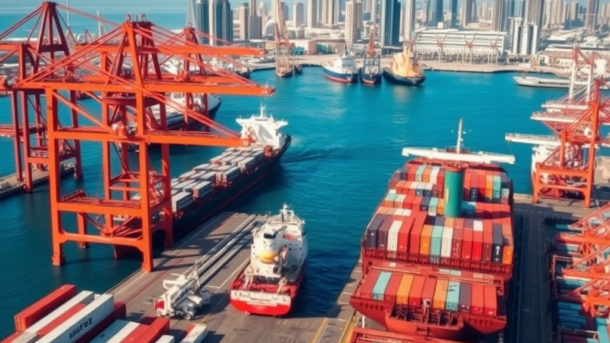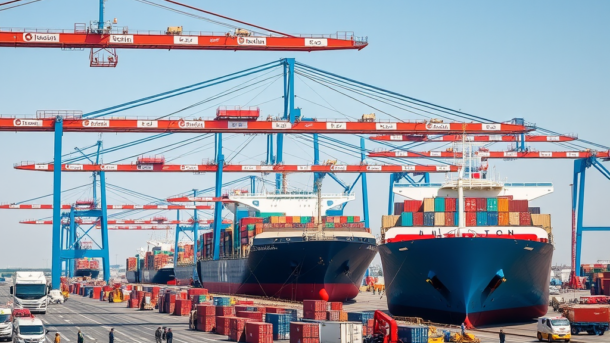In the bustling business hub of Dubai, where opportunities abound and competition is fierce, managing finances can be a daunting task for entrepreneurs and company owners alike. The importance of precise financial tracking cannot be overstated; it serves as the backbone of any successful business operation. This is where bookkeeping services come into play, providing essential support in navigating the complexities of financial management. As the city evolves with emerging regulations and tax systems, the need for professional bookkeeping has surged. One may wonder how these services contribute to business sustainability while influencing strategic financial decisions. A closer look reveals the pivotal role that effective bookkeeping plays in the intricate financial landscape of Dubai.
Accurate financial records are not merely a compliance necessity, but a tool for informed decision-making. Business operators can identify trends, monitor cash flows, and make projections that guide future strategies. Failure to maintain organized records can lead to financial mismanagement and potential legal troubles, especially in a regulatory environment like Dubai’s. Hence, investing in reliable bookkeeping services is not an option but a necessity for long-term success. In addition, accurate bookkeeping is crucial for getting valuable insights into company performance, thereby steering the business on its expected path. Does it make sense for you to manage these records internally or seek out professional assistance?
The Importance of Accurate Financial Records

When it comes to financial management, the quality of record-keeping can directly affect the stability of a business. The legal implications are significant; in Dubai, regulatory mandates are stringent regarding financial documentation. Accurate records help avoid penalties and ensure compliance with local and international laws. Moreover, financial transparency can elevate a company’s reputation among stakeholders and investors.
Key Services Offered by Bookkeeping Firms

Understanding the variety of services offered by bookkeeping firms is paramount for anyone looking to streamline their financial operations. These services typically include:
- Expense Tracking
- Invoicing Management
- Payroll Processing
In addition to these standard services, firms in Dubai also provide specialized offerings tailored to the unique business environment. The growing market demands solutions that cater to both local regulations and international standards, which can include:
- Tax Preparation and Planning
- Financial Forecasting
- Cash Flow Management
| Service Type | Description | Typical Duration |
|---|---|---|
| Monthly Bookkeeping | Comprehensive monthly tracking of financial transactions. | 30 days |
| Quarterly Analysis | In-depth review of financial performance and cash flows. | 90 days |
| Annual Financial Statements | Preparation of year-end financial reports for compliance. | 1 year |
Benefits of Outsourcing Bookkeeping Services
Outsourcing bookkeeping can lead to significant advantages for businesses in Dubai. One of the most compelling arguments is the cost-effectiveness of hiring external professionals compared to maintaining an in-house team. This allows companies to direct their resources toward core business activities rather than administrative tasks. Furthermore, bookkeeping firms leverage advanced tools and technologies to ensure accuracy and efficiency.
Accessing these innovations can make the difference between meeting compliance requirements and facing penalties. You also benefit from the expertise offered by seasoned professionals who are well-versed in the nuances of the local economy. Therefore, outsourcing not only simplifies financial management but also enhances a company’s resilience in a rapidly evolving market. This strategic decision often leads to heightened productivity and a clearer focus on growth strategies.
Choosing the Right Bookkeeping Service in Dubai
Selecting the right bookkeeping service is crucial for seamless financial management. Entrepreneurs should weigh several factors when making their choice. Here are some key considerations:
- Experience in Your Industry
- Range of Services Offered
- Reputation and Client Reviews
Each of these aspects can significantly impact the effectiveness and reliability of the bookkeeping service. It’s essential to ensure that the firm you choose understands the local regulations and market dynamics, as having this familiarity enables better guidance and tailored solutions.
Conclusion
In conclusion, the significance of professional bookkeeping services cannot be overstated in the context of managing business finances in Dubai. Accurate financial records are crucial for compliance and strategic decision-making. Moreover, the benefits of outsourcing these services far outweigh the costs, offering businesses the freedom to thrive in a competitive environment. As regulations evolve and the market grows in complexity, investing in quality bookkeeping becomes an essential strategy for sustainable growth.
Frequently Asked Questions
- What are the typical costs for bookkeeping services in Dubai? Costs can vary widely based on the size of your business and the complexity of your needs, often ranging from AED 1,500 to AED 5,000 monthly.
- How can bookkeeping help my business save money? By identifying inefficiencies and ensuring compliance, businesses can avoid penalties and improve budgeting.
- Are bookkeeping services regulated in Dubai? Yes, various regulations govern financial practices, but the firms themselves must comply with local laws and guidelines.
- Can I manage bookkeeping myself instead of hiring a service? While it’s possible, it is often more beneficial to leverage professional expertise due to complex regulations.
- What technologies are commonly used in bookkeeping services today? Cloud-based software platforms, mobile apps for expense tracking, and automated report generation tools are widely used.









